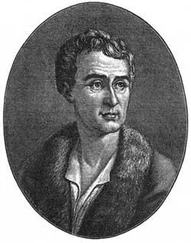Жан-Жак Руссо - The Confessions of Jean Jacques Rousseau — Volume 06
Здесь есть возможность читать онлайн «Жан-Жак Руссо - The Confessions of Jean Jacques Rousseau — Volume 06» — ознакомительный отрывок электронной книги совершенно бесплатно, а после прочтения отрывка купить полную версию. В некоторых случаях можно слушать аудио, скачать через торрент в формате fb2 и присутствует краткое содержание. Жанр: Биографии и Мемуары, literature_18, foreign_antique, на английском языке. Описание произведения, (предисловие) а так же отзывы посетителей доступны на портале библиотеки ЛибКат.
- Название:The Confessions of Jean Jacques Rousseau — Volume 06
- Автор:
- Жанр:
- Год:неизвестен
- ISBN:нет данных
- Рейтинг книги:5 / 5. Голосов: 1
-
Избранное:Добавить в избранное
- Отзывы:
-
Ваша оценка:
- 100
- 1
- 2
- 3
- 4
- 5
The Confessions of Jean Jacques Rousseau — Volume 06: краткое содержание, описание и аннотация
Предлагаем к чтению аннотацию, описание, краткое содержание или предисловие (зависит от того, что написал сам автор книги «The Confessions of Jean Jacques Rousseau — Volume 06»). Если вы не нашли необходимую информацию о книге — напишите в комментариях, мы постараемся отыскать её.
The Confessions of Jean Jacques Rousseau — Volume 06 — читать онлайн ознакомительный отрывок
Ниже представлен текст книги, разбитый по страницам. Система сохранения места последней прочитанной страницы, позволяет с удобством читать онлайн бесплатно книгу «The Confessions of Jean Jacques Rousseau — Volume 06», без необходимости каждый раз заново искать на чём Вы остановились. Поставьте закладку, и сможете в любой момент перейти на страницу, на которой закончили чтение.
Интервал:
Закладка:
She, who brought everything into a system, had not failed to do as much by religion; and this system was composed of ideas that bore no affinity to each other. Some were extremely good, and others very ridiculous, being made up of sentiments proceeding from her disposition, and prejudices derived from education. Men, in general, make God like themselves; the virtuous make Him good, and the profligate make Him wicked; ill-tempered and bilious devotees see nothing but hell, because they would willingly damn all mankind; while loving and gentle souls disbelieve it altogether; and one of the astonishments I could never overcome, is to see the good Fenelon speak of it in his Telemachus as if he really gave credit to it; but I hope he lied in that particular, for however strict he might be in regard to truth, a bishop absolutely must lie sometimes. Madam de Warrens spoke truth with me, and that soul, made up without gall, who could not imagine a revengeful and ever angry God, saw only clemency and forgiveness, where devotees bestowed inflexible justice, and eternal punishment.
She frequently said there would be no justice in the Supreme Being should He be strictly just to us; because, not having bestowed what was necessary to render us essentially good, it would be requiring more than he had given. The most whimsical idea was, that not believing in hell, she was firmly persuaded of the reality of purgatory. This arose from her not knowing what to do with the wicked, being loathed to damn them utterly, nor yet caring to place them with the good till they had become so; and we must really allow, that both in this world and the next, the wicked are very troublesome company.
It is clearly seen that the doctrine of original sin and the redemption of mankind is destroyed by this system; consequently that the basis of the Christian dispensation, as generally received, is shaken, and that the Catholic faith cannot subsist with these principles; Madam de Warrens, notwithstanding, was a good Catholic, or at least pretended to be one, and certainly desired to become such, but it appeared to her that the Scriptures were too literally and harshly explained, supposing that all we read of everlasting torments were figurative threatenings, and the death of Jesus Christ an example of charity, truly divine, which should teach mankind to love God and each other; in a word, faithful to the religion she had embraced, she acquiesced in all its professions of faith, but on a discussion of each particular article, it was plain she thought diametrically opposite to that church whose doctrines she professed to believe. In these cases she exhibited simplicity of art, a frankness more eloquent than sophistry, which frequently embarrassed her confessor; for she disguised nothing from him. "I am a good Catholic," she would say, "and will ever remain so; I adopt with all the powers of my soul the decisions of our holy Mother Church; I am not mistress of my faith, but I am of my will, which I submit to you without reserve; I will endeavor to believe all,—what can you require more?"
Had there been no Christian morality established, I am persuaded she would have lived as if regulated by its principles, so perfectly did they seem to accord with her disposition. She did everything that was required; and she would have done the same had there been no such requisition: but all this morality was subordinate to the principles of M. Tavel, or rather she pretended to see nothing in religion that contradicted them; thus she would have favored twenty lovers in a day, without any idea of a crime, her conscience being no more moved in that particular than her passions. I know that a number of devotees are not more scrupulous, but the difference is, they are seduced by constitution, she was blinded by her sophisms. In the midst of conversations the most affecting, I might say the most edifying, she would touch on this subject, without any change of air or manner, and without being sensible of any contradiction in her opinions; so much was she persuaded that our restrictions on that head are merely political, and that any person of sense might interpret, apply, or make exceptions to them, without any danger of offending the Almighty.
Though I was far enough from being of the same opinion in this particular, I confess I dared not combat hers; indeed, as I was situated, it would have been putting myself in rather awkward circumstances, since I could only have sought to establish my opinion for others, myself being an exception. Besides, I entertained but little hopes of making her alter hers, which never had any great influence on her conduct, and at the time I am speaking of none; but I have promised faithfully to describe her principles, and I will perform my engagement—I now return to myself.
Finding in her all those ideas I had occasion for to secure me from the fears of death and its future consequences, I drew confidence and security from this source; my attachment became warmer than ever, and I would willingly have transmitted to her my whole existence, which seemed ready to abandon me. From this redoubled attachment, a persuasion that I had but a short time to live, and profound security on my future state, arose an habitual and even pleasing serenity, which, calming every passion that extends our hopes and fears, made me enjoy without inquietude or concern the few days which I imagined remained for me. What contributed to render them still snore agreeable was an endeavor to encourage her rising taste for the country, by every amusement I could possibly devise, wishing to attach her to her garden, poultry, pigeons, and cows: I amused myself with them and these little occupations, which employed my time without injuring my tranquillity, were more serviceable than a milk diet, or all the remedies bestowed on my poor shattered machine, even to effecting the utmost possible reestablishment of it.
The vintage and gathering in our fruit employed the remainder of the year; we became more and more attached to a rustic life, and the society of our honest neighbors. We saw the approach of winter with regret, and returned to the city as if going into exile. To me this return was particularly gloomy, who never expected to see the return of spring, and thought I took an everlasting leave of Charmettes. I did not quit it without kissing the very earth and trees, casting back many a wishful look as I went towards Chambery.
Having left my scholars for so long a time, and lost my relish for the amusements of the town, I seldom went out, conversing only with Madam de Warrens and a Monsieur Salomon, who had lately become our physician. He was an honest man, of good understanding, a great Cartesian, spoke tolerably well on the system of the world, and his agreeable and instructive conversations were more serviceable than his prescriptions. I could never bear that foolish trivial mode of conversation which is so generally adopted; but useful instructive discourse has always given me great pleasure, nor was I ever backward to join in it. I was much pleased with that of M. Salomon; it appeared to me, that when in his company, I anticipated the acquisition of that sublime knowledge which my soul would enjoy when freed from its mortal fetters. The inclination I had for him extended to the subjects which he treated on, and I began to look after books which might better enable me to understand his discourse. Those which mingled devotion with science were most agreeable to me, particularly Port Royal's Oratory, and I began to read or rather to devour them. One fell into my hands written by Father Lami, called 'Entretiens sur les Sciences', which was a kind of introduction to the knowledge of those books it treated of. I read it over a hundred times, and resolved to make this my guide; in short, I found (notwithstanding my ill state of health) that I was irresistibly drawn towards study, and though looking on each day as the last of my life, read with as much avidity as if certain I was to live forever.
Читать дальшеИнтервал:
Закладка:
Похожие книги на «The Confessions of Jean Jacques Rousseau — Volume 06»
Представляем Вашему вниманию похожие книги на «The Confessions of Jean Jacques Rousseau — Volume 06» списком для выбора. Мы отобрали схожую по названию и смыслу литературу в надежде предоставить читателям больше вариантов отыскать новые, интересные, ещё непрочитанные произведения.
Обсуждение, отзывы о книге «The Confessions of Jean Jacques Rousseau — Volume 06» и просто собственные мнения читателей. Оставьте ваши комментарии, напишите, что Вы думаете о произведении, его смысле или главных героях. Укажите что конкретно понравилось, а что нет, и почему Вы так считаете.











